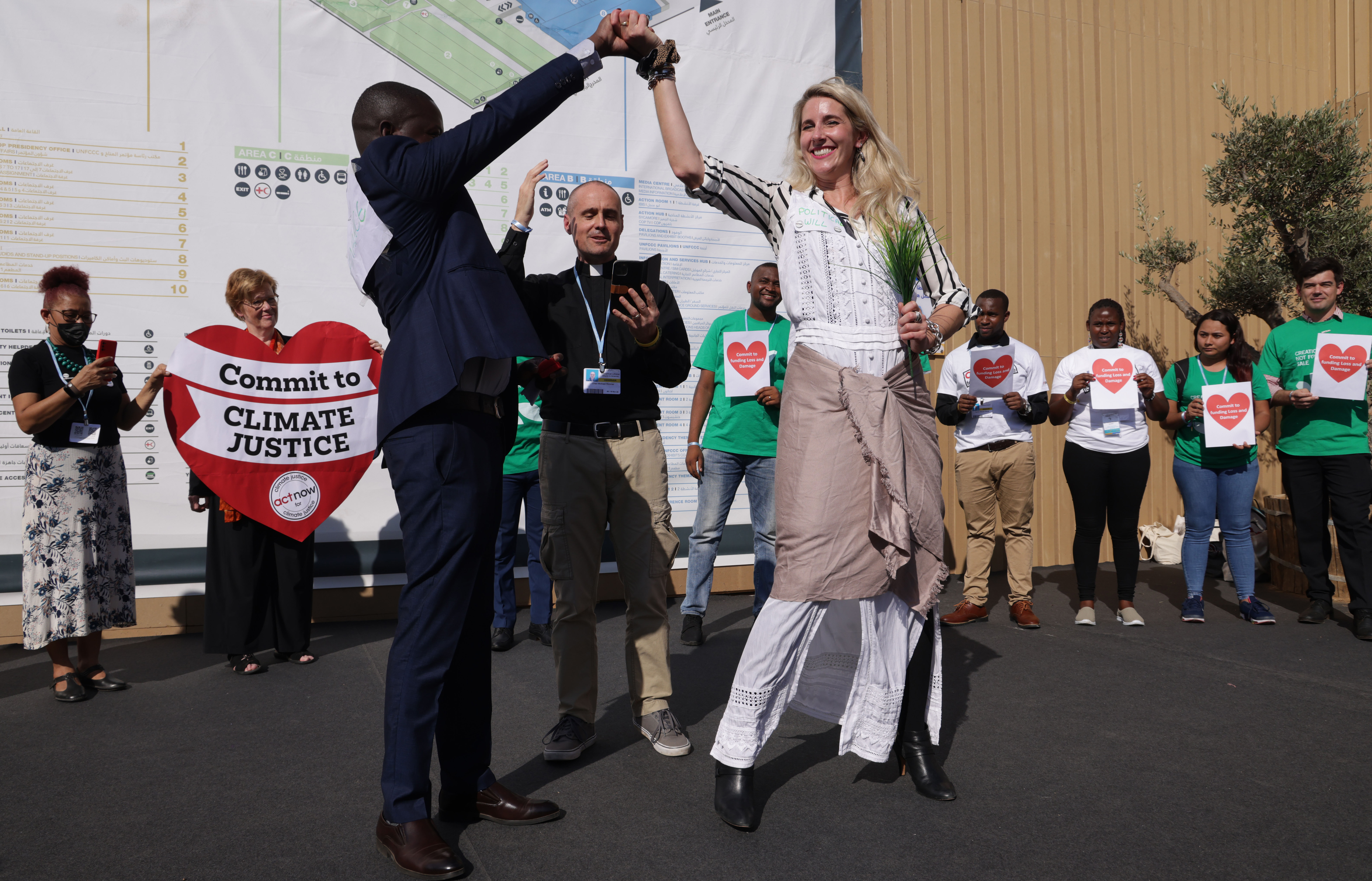The finance numbers that will come out of the COP27 climate summit will make or break a COP27 agreement. But already climate justice activists are warning against distraction from pushed-out timelines for loss and damage and confusion created by a blurring of financing streams for different funding mechanisms.
Eddy Perez of the Climate Action Network, which has presented daily briefings at the UN climate summit in Sharm El-Sheikh in Egypt, says the pledge of $100-billion a year until 2025 (first tabled by wealthy nations in Copenhagen in 2009 and extended after 2020) has not fully materialised.
Playing catch-up as well as the introduction of new streams for financing and funding over the years has made the 2009 Copenhagen pledge inadequate to realistically fund adaptation and mitigation in 2022, he says. Added to this, this year’s formal COP negotiating agenda made the commitment of direct funding for loss and damage. It ends a 30-year impasse in recognising that reparations of this kind are needed when there is no place for adaptation and mitigation because loss and damage has already occurred. However, polluting nations have set themselves a deadline for action only in two years’ time.
“We must watch the numbers because they are indicators. They tell us stories – the $100-billion a year is minuscule really. It is a story of oppression. It’s a story of greed. It’s a story of a number that was decided by one side, where the benefactors got to decide. So this is a story of injustice and we need to break the injustice,” Perez says, speaking to Daily Maverick at COP27.
Political will and ‘mistrusted transition’
The COP27 Presidency’s statement this week estimates that the world will require between $4-trillion and $7-trillion per year to shift towards sustainable development and meet agreed Paris Agreement targets, made in 2015.
The flow of money, or lack thereof, is therefore tied to political will, Perez says. It also comes against the backdrop of an Intergovernmental Panel on Climate Change warning that the world is on track to reach 1.5°C above pre-industrial levels by the next decade.
Read in Daily Maverick: “COP27: Africa deserves climate justice, not handouts”
“We should be moving towards implementation, which means having the resources and capacity to implement as fast as possible, all of the time. And implementation also means understanding the different set of gaps that we have in financing. There is a gap when it comes to resource and mitigation pledges, there is a gap in having access to adaptation finance pledges, there is a gap in understanding when it comes to climate devastation and how do we respond to it, there is also a gap when it comes to the different set of institutional mechanisms that we need in the context of climate crisis.”
He warns too that as developed nations back-pedal on financing and obligation, and shift financing flows, it creates a culture of a “mistrusted transition”. It’s the likes of insurance money being pushed as financing for loss and damage, or carbon markets for offsets that can become a trap for developing nationals. There are also loans disguised as funding that tighten the debt noose around already indebted nations.
“The developed nations are leading us towards a mistrusted transition and towards the fact that we’re going to be talking about shifting the financial flows. This is because they are not respecting their practice,” he says.
John Nordbo of CARE Denmark, a humanitarian NGO that works to build climate resilience in rural communities, also raises a red flag around how rich nations have got away “with artificial money and invented money” by counting questionable climate mitigation or adaptation programmes as climate financing.
“We can see from Oxfam investigations, for instance, that around 40% of what the World Bank calls climate finance cannot be accounted for. So, in this sense it’s artificial,” he says.
Read in Daily Maverick: “SA formally hands over R1.5-trillion clean energy investment plan to International Partners Group in Egypt”
Nordbo, who is attending COP27, says Organisation for Economic Cooperation and Development numbers show that not once since 2013 has the target of $100-billion been met. He adds that the absence of the US and China presidents from this year’s COP also adds to a growing trust deficit and mounting doubt that civil society’s call for new and additional funding will be realised.
But he says the work needs to start nevertheless and the money must start flowing from taxation on corporations, the private sector and also tax on the likes of plane tickets or red meat.
He also says mechanisms need to be in place to decentralise and localise funding so that the pipeline is freed up to get money directly to affected communities promptly.
Teresa Anderson, climate policy coordinator for ActionAid, who shared a panel with Perez at the beginning of week one of COP27 proceedings, also made this point: “Governments are currently not choosing to tax their corporations but we know that national tax systems will be key to unlocking what we need to address climate change.”
Read in Daily Maverick: “Ten things to watch for at COP27 in Egypt”
Anderson also warns against the trap of carbon offset programmes that shift the burden of responsibility to vulnerable nations. “It looks like developed nations are taking action, without actually taking any action.”
Anderson says this kind of green-washing needs to be called out because she says millions of people in the most vulnerable nations will suffer most while polluting nations stand to get another easy pass. DM\OBP
Ufrieda Ho is part of the Danida Reporting from the African Frontlines of Climate Change fellowship programme
https://www.youtube.com/watch?v=REeWvTRUpMk





